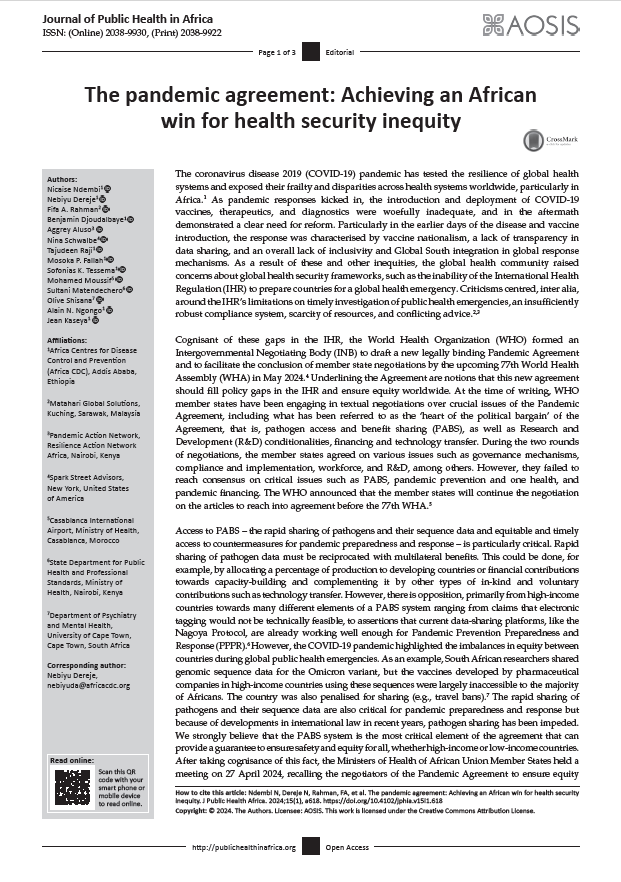The coronavirus disease 2019 (COVID-19) pandemic has tested the resilience of global health systems and exposed their frailty and disparities across health systems worldwide, particularly in Africa. As pandemic responses kicked in, the introduction and deployment of COVID-19 vaccines, therapeutics, and diagnostics were woefully inadequate, and in the aftermath demonstrated a clear need for reform. Particularly in the earlier days of the disease and vaccine introduction, the response was characterised by vaccine nationalism, a lack of transparency in data sharing, and an overall lack of inclusivity and Global South integration in global response mechanisms. As a result of these and other inequities, the global health community raised concerns about global health security frameworks, such as the inability of the International Health Regulation (IHR) to prepare countries for a global health emergency. Criticisms centred, inter alia, around the IHR’s limitations on timely investigation of public health emergencies, an insufficiently robust compliance system, scarcity of resources, and conflicting advice.
Cognisant of these gaps in the IHR, the World Health Organization (WHO) formed an Intergovernmental Negotiating Body (INB) to draft a new legally binding Pandemic Agreement and to facilitate the conclusion of member state negotiations by the upcoming 77th World Health Assembly (WHA) in May 2024. Underlining the Agreement are notions that this new agreement should fill policy gaps in the IHR and ensure equity worldwide. At the time of writing, WHO member states have been engaging in textual negotiations over crucial issues of the Pandemic Agreement, including what has been referred to as the ‘heart of the political bargain’ of the Agreement, that is, pathogen access and benefit sharing (PABS), as well as Research and Development (R&D) conditionalities, financing and technology transfer. During the two rounds of negotiations, the member states agreed on various issues such as governance mechanisms, compliance and implementation, workforce, and R&D, among others. However, they failed to reach consensus on critical issues such as PABS, pandemic prevention and one health, and pandemic financing. The WHO announced that the member states will continue the negotiation on the articles to reach into agreement before the 77th WHA.
